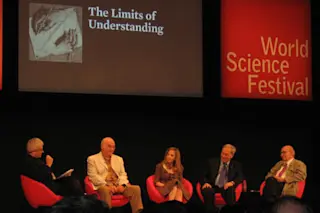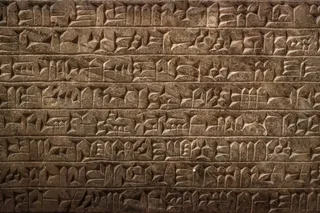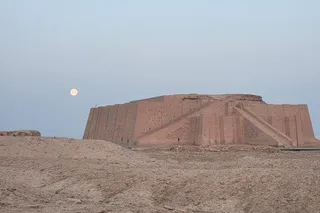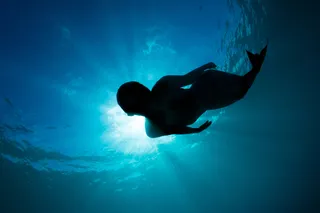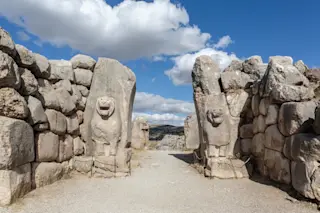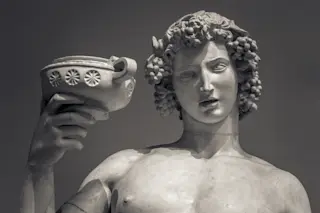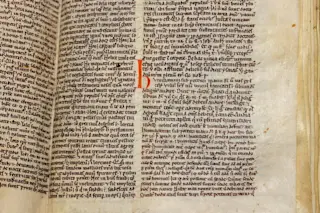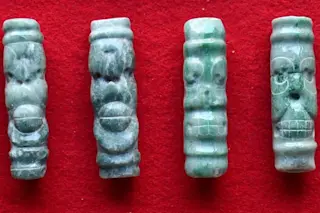A mathematician, a philosopher, a physicist, and an artificial intelligence expert get together to define the limits of human knowledge. Chaos ensues. That’s the short version of Friday evening’s World Science Festival discussion, The Limits of Understanding, where panelists Gregory Chaitin, Rebecca Goldstein, Mario Livio, and Marvin Minsky bravely tackled the scientific and philosophical implications of Gödel’s incompleteness theorem for a packed house. Gödel’s work has perplexed thinkers for decades, but the on-stage team dispensed with the basics pretty quickly. As philosopher Goldstein put it, Gödel’s infamous proof from 1931 revealed that “there are true propositions [in mathematics] that can’t be proved.” Livio took a stab at incompleteness via analogy to physics: “We physicists look for a theory of everything in physics; Gödel showed that there is no theory of everything in math.” In keeping with the theme of a theorem that overflows with philosophical implications, the ensuing conversation leapt ...
World Science Festival: Will Scientists Ever Know Everything?
Explore the limits of understanding as experts discuss Godel's incompleteness theorem and its impact on human knowledge.
More on Discover
Stay Curious
SubscribeTo The Magazine
Save up to 40% off the cover price when you subscribe to Discover magazine.
Subscribe

